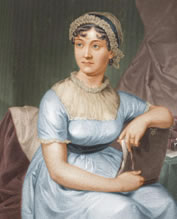
With the amount of documents and records available when researching your family history, it is easy to dismiss those family documents that may contain so much valuable information. One of those key documents often forgotten about is the ‘Will’ record of an ancestor. With Will records available to access from 1384, there’s a large selection to view.
They are fascinating records to view. Here, we look at some famous examples to see just what can be found when looking at a Will record.
TheGenealogist provides unique actual images of a Will within the Prerogative Court of Canterbury PCC Will Collection that show the original document that our ancestors had drawn up in the event of their death.
Firstly, we search for the Will record of the famous author Jane Austen. By searching for ‘Jane Austen’ in the ‘Wills’ section in 1817 using the Master Search feature of TheGenealogist, we discover her Will record. Here we see the result returned for Jane, the date of the Will being April 1817. Jane Austen died in July 1817.
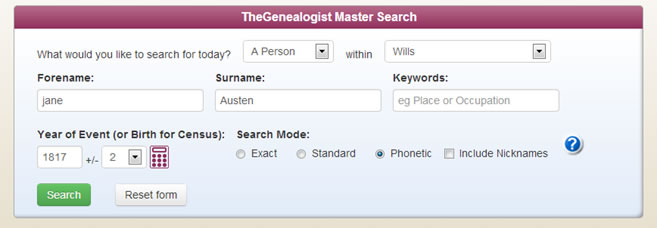

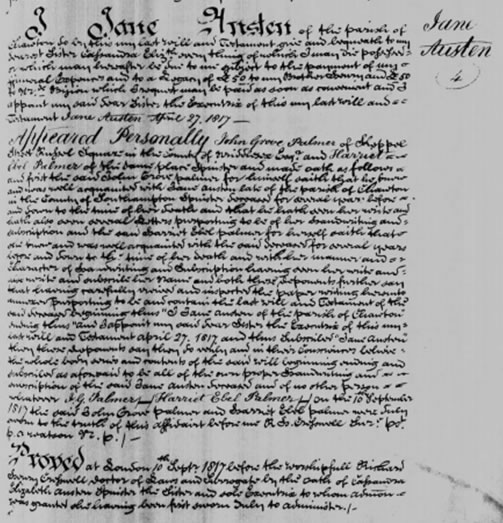
Here we see a copy of the actual Will record and we are able to see her final wishes and testimony to how her final estate should be divided. After a number of years of contrasting fortunes, her books had been published and were selling well making her final years more comfortable.
Wills can give us so much information including details of family members, places of residence and burial, as well as revealing personal circumstances such as their wealth. Here we see a copy of the original document of the poet Percy Shelley.
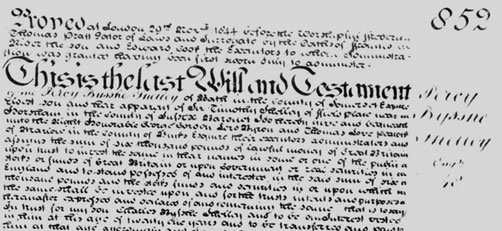
Before 1858, Wills for England and Wales were proved in the church courts. The two major courts were called the Prerogative Courts of either Canterbury or York. Wealthy people would have a Will proven in the Prerogative Courts. If the Wills weren’t proved in either of the two prerogative courts they were proved in smaller regional ‘consistory’ courts. The smaller regional courts were used for Wills of lesser values but are still invaluable in our research if our ancestors were less wealthy.
Over 500 years of Will Records
All Wills from 1384 up until 12 January 1858, had to be proven in a church court to ensure the Will was legal. Wills were proven in over 250 church courts across the country, and the records of these are now stored mostly in local record offices.
TheGenealogist.co.uk has a substantial collection of Wills and Will indexes available online, including the index of the Court of York and full Wills for the Court of Canterbury. The unique search features provide a simple way of accessing these Will records quickly and easily.
There are over one million records in the Prerogative Court of Canterbury (PCC) ‘Wills and Probate’ collection, which covers the years 1384 to January 1858. The records are copies of registered Wills, which were written into volumes by the clerks at the church courts, and many earlier records are in Latin.
Wills can tell us a lot of things about family relations at the time. We find out how successful the person making the will was and how much they were able to leave to beneficiaries. We also see who was favoured, was there a child who was left more or less than other siblings? Was someone left out completely due to a family feud?
Access Over a Billion Records
Try a four-month Diamond subscription and we’ll apply a lifetime discount making it just £44.95 (standard price £64.95). You’ll gain access to all of our exclusive record collections and unique search tools (Along with Censuses, BMDs, Wills and more), providing you with the best resources online to discover your family history story.
We’ll also give you a free 12-month subscription to Discover Your Ancestors online magazine (worth £24.99), so you can read more great Family History research articles like this!
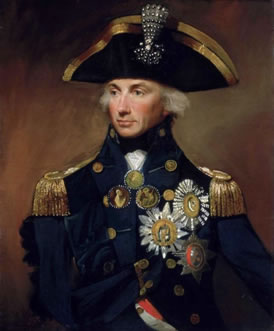
It was not just the wealthy who made Wills. Sailors who joined the ever expanding Royal Navy were legally required to make Wills in case the worst was to happen in their often dangerous and hazardous career. Poorer people also often wanted to leave behind their meagre possessions to be distributed fairly amongst their dependants, as well as using the document to express their hopes and wishes for their family. Some of the index records of these smaller Wills, under the value of £5, that were administered in the smaller regional courts are also found on TheGenealogist.
The PCC will records on TheGenealogist include a high quality image so you can see word for word what your ancestor wanted in their Will.
Another Will record from a well-known individual we have on file belongs to The Right Honourable, Horatio Nelson, 1st Viscount Nelson of the Royal Navy.
As well as being a celebrated military hero, Nelson had a colourful private life, becoming estranged from his wife Frances and a partner of the married Lady Emma Hamilton. He then lived with the married socialite, Lady Emma Hamilton and her husband in a romantic arrangement that intrigued the press at the time. Nelson had a daughter with Lady Hamilton, named Horatia.
A search on TheGenealogist finds the Will Records of Horatio Nelson in a quick mouse click. The results return two wills.
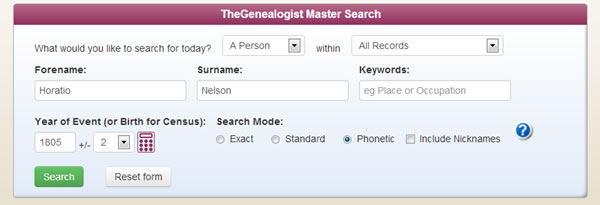
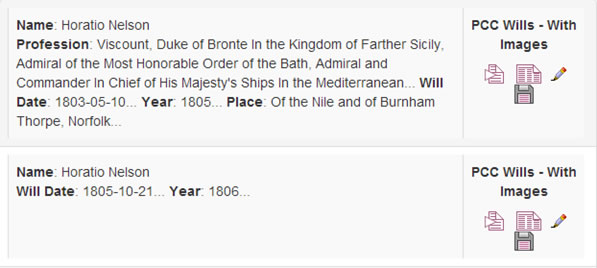
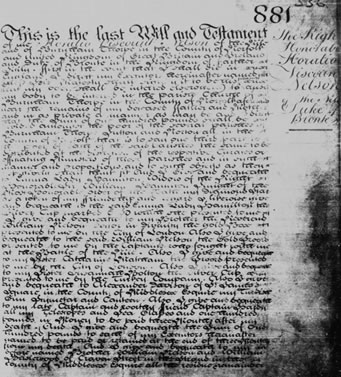
His first Will was made in 1803. This was then revised in 1805 to include Lady Hamilton and their daughter.
Both Will record images can be found on TheGenealogist. To the right you can see the first Will placed on record by Viscount Nelson.
The revised Will in 1805 contains Nelson’s wishes for the country to maintain Lady Hamilton’s position in society ‘and they will give her an ample provision to maintain her rank in life’ to quote directly from the Will. Nelson argues about the diplomatic efforts of Lady Hamilton whilst wife of the British Envoy in Naples and her influence over the Queen of Naples which helped the British cause.
Below is a copy of the revised Will.
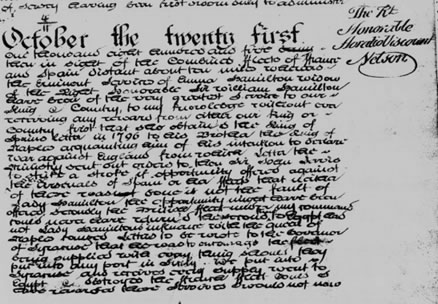
Sadly, despite Nelson’s wishes, the state did not provide for Lady Hamilton after his death. She lived off the modest pension of her husband, Lord Hamilton for a time, but then ran deeply into debt maintaining the property previously acquired by Nelson and eventually died in poverty in Calais.
Examples such as these show the extra information that can be obtained about our ancestors that would be difficult to find from other sources. It’s worth trying to discover if your ancestors left a Will and who they left their money and possessions too!
On TheGenealogist, the clarity of the copy of the actual will is high and allows a researcher to view an image of an actual will dating back to 1384. It’s the largest selection of records currently available online.






